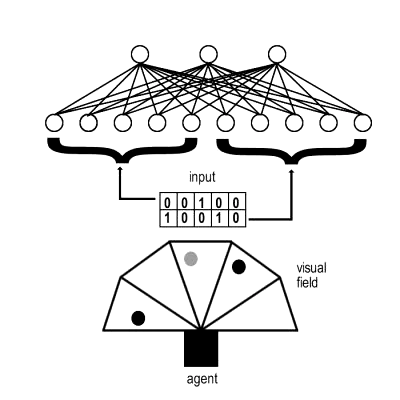Cultural transmission between and within generations

Abstract
We describe some simulations that compare cultural transmission between and within generations (inter-generational vs intra-generational transmission) in populations of embodied agents controlled by neural networks. Our results suggest that intra-generational transmission has the role of adding variability to the evolutionary process and that this function seems particularly useful when the population lives in a rapidly changing environment. Adaptation to environmental change is slower if cultural transmission is purely inter-generational while it is faster if a certain amount of intra-generational cultural transmission makes it possible to remove earlier and no longer suitable behaviors, facilitating the emergence of new and more appropriate ones.
Type
Publication
Acerbi A., Parisi D. (2006) Cultural transmission between and within generations, Journal of Artificial Societies and Social Simulations, 9 (1)